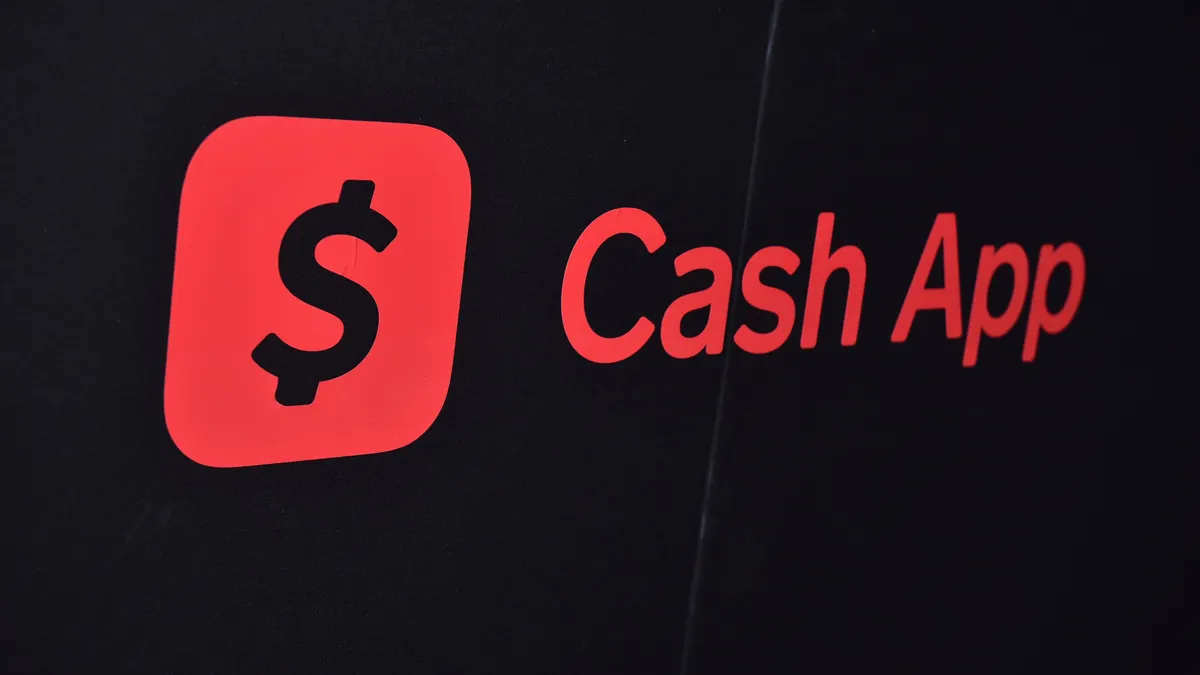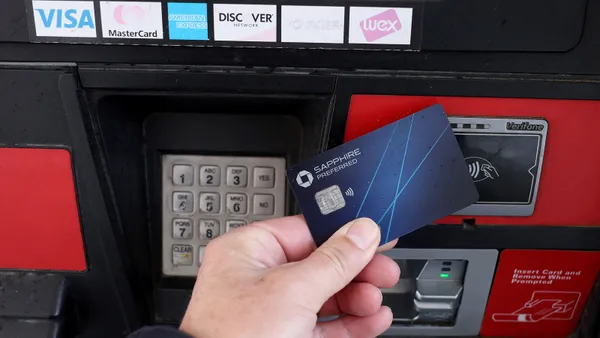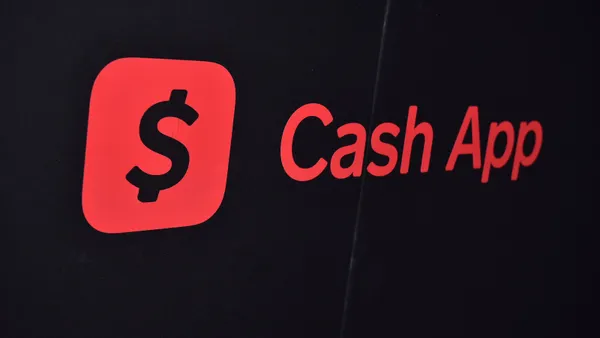Dive Brief:
- Cash App is expanding short-term consumer lending, with origination volume surging in the third quarter as parent Block expands credit to more customers and leverages loans for growth.
- Loss rates for such lending, which the company calls Cash App Borrow loans, remain below 3%, said Block’s chief financial and chief operating officer, Amrita Ahuja, during a quarterly earnings conference call with analysts last Thursday. “We’ll obviously be very watchful on a real-time basis on how they trend, but what we’ve seen so far has been extremely strong momentum,” she said.
- Cash App is expanding the number of states in which it offers these short-term loans, supported by “core underwriting model improvements,” Ahuja said on the call. Cash App had 58 million active monthly users as of September, according to Block.
Dive Insight:
In March, Block received federal regulatory approval to shift Cash App’s short-term lending product to its own industrial bank, Salt Lake City-based Square Financial Services.
Cash App’s third-quarter lending more than doubled, accounting for about $22 billion on an annualized basis, Block said. Cash App is “getting more nuanced with limits for our existing customers who are highly engaged in the platform,” Ahuja said.
First-time borrowers can qualify for up to $500, and existing customers who have used the product can borrow as much as $1,400, although “most customers will not qualify for their max limit,” a Block spokesperson said Friday in an email. Cash App charges a 5% fee on most of these loans.
With respect to the SFS loans, Block said in a March press release that it would adopt “a gradual, disciplined approach to ramping volumes over the course of the coming quarters.” With the banking change, Block began keeping those short-term loans, “along with certain other loan products,” on its balance sheet, the company said Thursday in its 10-Q regulatory filing.
For Block, Cash App borrowers also display “meaningful lifts in engagement” with other parts of the ecosystem, Ahuja said, citing higher money inflows, Cash App card spending and retention rates relative to other active users.
“It's a key piece of the broader engagement story for us around banking within Cash App,” she said. “And we think more experimentation and more product innovation here around Borrow can help us drive growth in other parts of our business.”
The jump in Cash App lending caused a commensurate rise in transaction and loan-risk expenses, which increased 89% in the quarter to $363.5 million from the same period a year ago.
Block’s third-quarter net income rose to $461.6 million, up from $281.1 million a year ago. Block’s net revenue rose 2%, to $6.1 billion, from the same period of 2024. Both the quarterly sales and profit were below Wall Street forecasts.
The surge in consumer lending gives Block additional balance sheet risk, “which we believe investors are sensitive to in the current environment,” RBC Capital Markets analyst Daniel Perlin wrote Thursday in a client note.
“Small balance, short-duration credit addresses real consumer pain points that traditional banks cannot,” William Blair analysts wrote Thursday in a client note. “While some investors might blanch at credit risk, we argue that these products’ short lives and unprecedented data troves informing underwriting decisions will deliver significantly better-than-expected long-term outcomes.”
Cash App has reaped a 30% return on invested capital for the short-term lending product, Owen Jennings, Block’s business lead, told analysts on the call.
“Such a large share of the U.S. population is living paycheck to paycheck and has to smooth through their pay periods that we see tremendous market fit for this offering,” he said.













